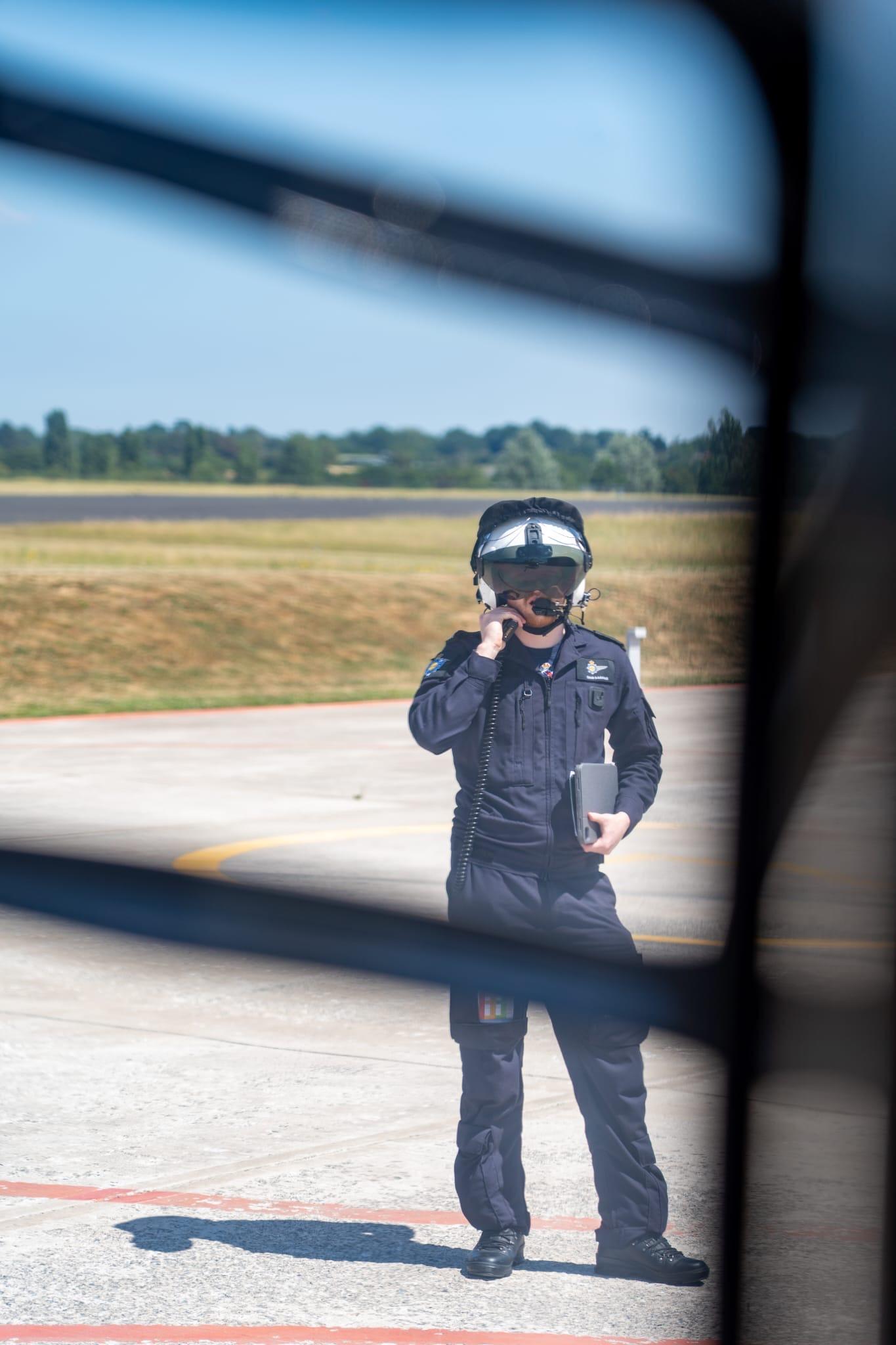EasyJet completes APU-ZERO Project

Image courtesy easyJet
The trial, conducted in collaboration with TCR, PCA manufacturer Guinault, and handler organisation Menzies Aviation, tested the performance of the PCA units alongside the installed reporting methods. This ensured a consistent cabin temperature, enhanced crew and passenger comfort and provided clear insights into turnaround performance.
Following the trial’s success, the mobile PCA solution will be gradually rolled out for use in easyJet’s operations at Milan Malpensa, with full implementation expected by May. EasyJet estimates the rollout will save ~1,150 tonnes of fuel annually for airline operations at Milan Malpensa Airport, equivalent to ~3,600 tonnes of CO2.*
The proof of concept, tested in September 2024, allows easyJet aircraft to switch off its Auxiliary Power Units - a gas turbine located at the tail of the plane.
The APU, one of many essential and intricate parts of a plane not only provides electric power and air conditioning to the aircraft during the turnaround process but also helps to start the engines when the aircraft is taxiing and preparing for take off.
However, when stationary during turnaround, APUs use a considerable amount of fuel which contributes to both noise and carbon emissions on the apron.
To solve this challenge and create a clean and quieter environment on the ground for both staff and passengers - easyJet and its partners TCR, PCA manufacturer Guinault and ground-handling partner Menzies, with the full cooperation of SEA Milan Airports, traded in the APU for electric and hybrid Pre-Conditioning Air Units.
PCAs, a mobile Ground Support Equipment solution connects to the airport’s Fixed Electrical Ground Power (FEGP) via the gate, instantly cutting down the noise and fuel burn that came with its predecessor while simultaneously providing filtered and conditioned air to passengers and crew during the boarding and deboarding process.
Following the trial on 57 aircraft operating out of and into Milan Malpensa’s Terminal 2, which is fully operated by easyJet, the airline saw a reduction in fuel use and carbon emissions. The airline estimates it’ll make an annual fuel saving of 1,115 tonnes – equivalent to 3,636 tonnes of Co2.
Speaking on the initiative, Lahiru Ranasinghe, Director of Sustainability at easyJet, said: “At easyJet we take a holistic approach to reducing our impact in the air and on the ground. This trial, part of our operational efficiencies workstream, resulted in fuel and emissions savings and a reduction in noise, without affecting our operation. This is yet another small but important step that contributes to our broader decarbonisation journey and is an excellent example of an initiative that provides both environmental and business benefits.”
“Following this successful proof of concept with our partners TCR, Guinault and Menzies we hope to replicate this model and deploy this initiative to many other bases that we operate in across our network.”
Katy Reid, Head of Sustainability & Corporate Responsibility, at Menzies Aviation added: “It’s fantastic to see this permanent switch to electric-powered Pre-Conditioning Air Units at Milan Malpensa Airport. AGS, Menzies Aviation’s partner at Milan Malpensa, has done us proud once again for adapting to new processes and equipment to deliver seamless operations for easyJet on the ground.
“This also highlights the strength of collaboration between airlines, airports and aviation services to reduce emissions from ground operations during aircraft turns and what can be achieved when partners support each other on their journey to meeting our aligned sustainability goals. The AGS and Menzies electric first approach has resulted in 81% of our motorised GSE fleet being electric at Malpensa Airport."
Kristof Philips, CEO of Airport Solutions at TCR, said: “The Collaboration between key stakeholders – Airbus, Guinault, easyJet and Menzies has enabled us to develop an integrated solution for actively managing APU usage on the ground.
“Witnessing the substantial reduction in APU runtime not only highlights carbon footprint reductions achieved but also considerable cost savings while supporting our customers in their sustainability journey."
In total, easyJet will be deploying 16 PCA units at Milan Malpensa with six units being added this month and another six in April, while the four remaining units will be added in May.
Since launching its roadmap to decarbonise its operations in 2022, easyJet continues to invest in several operational efficiencies to help lower its impact in both the air and the ground. Just recently easyJet achieved its best-ever per-passenger carbon intensity for 2024 – a 5.6% improvement versus the Net Zero baseline of 2019.













